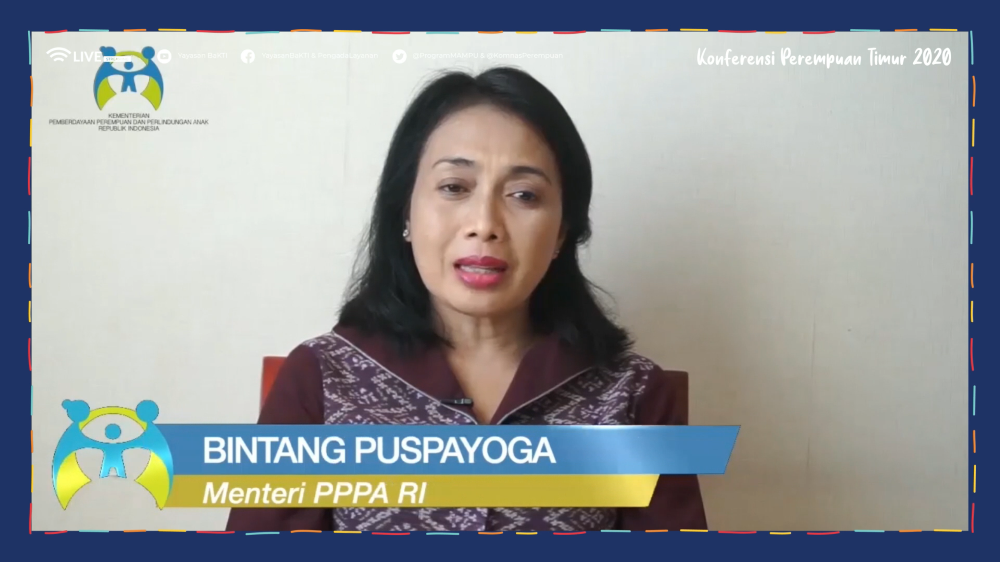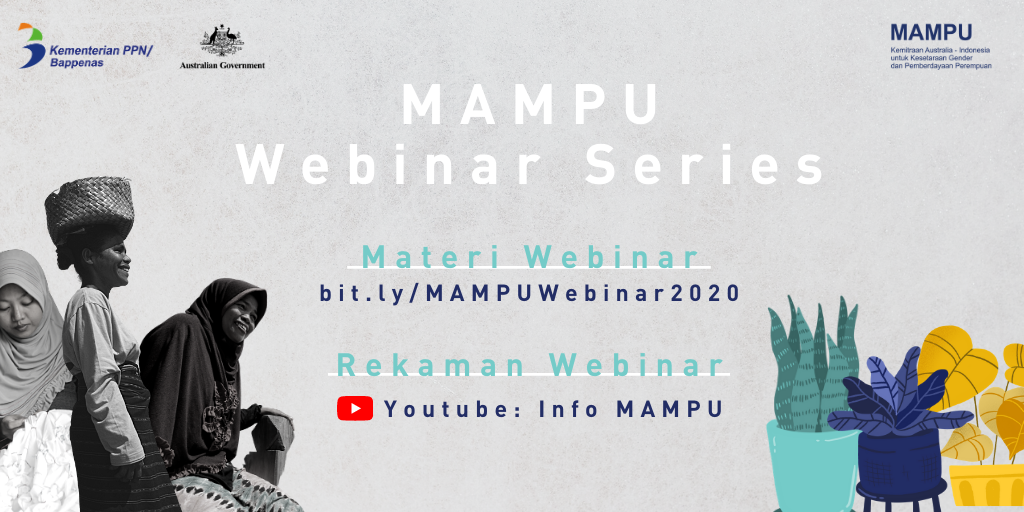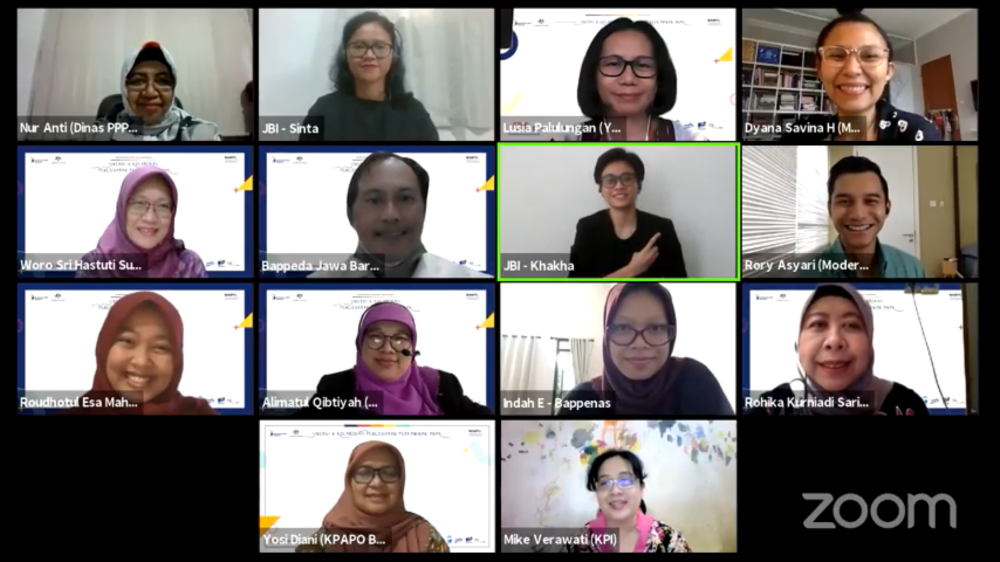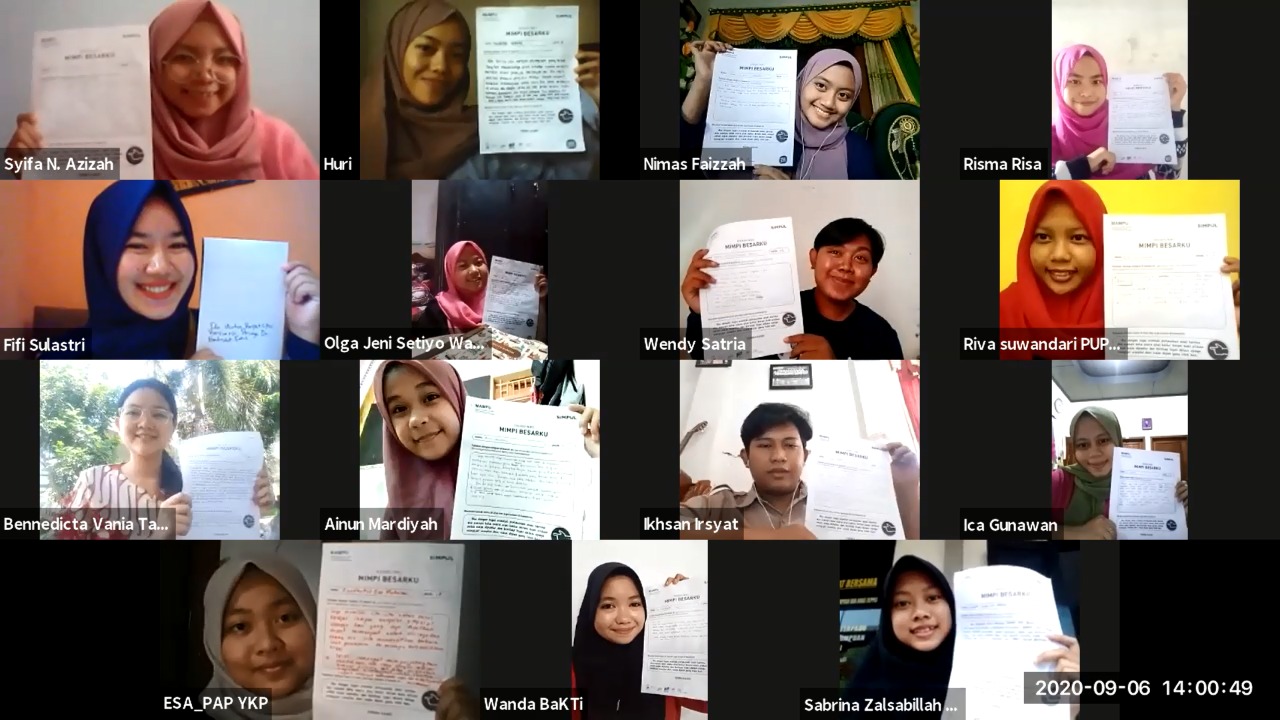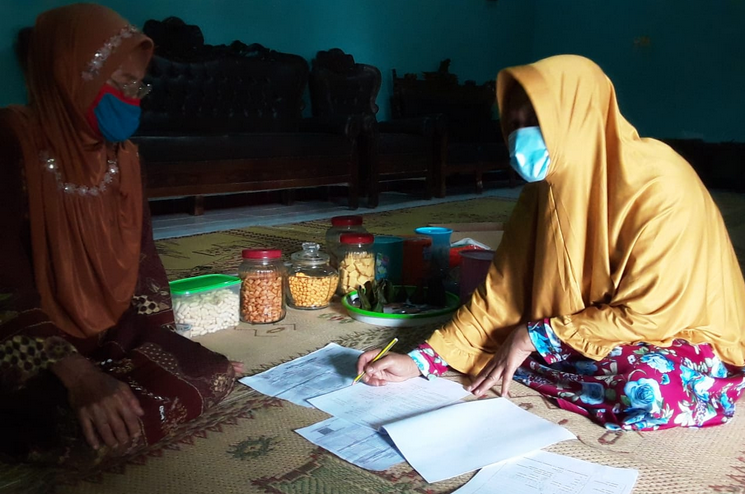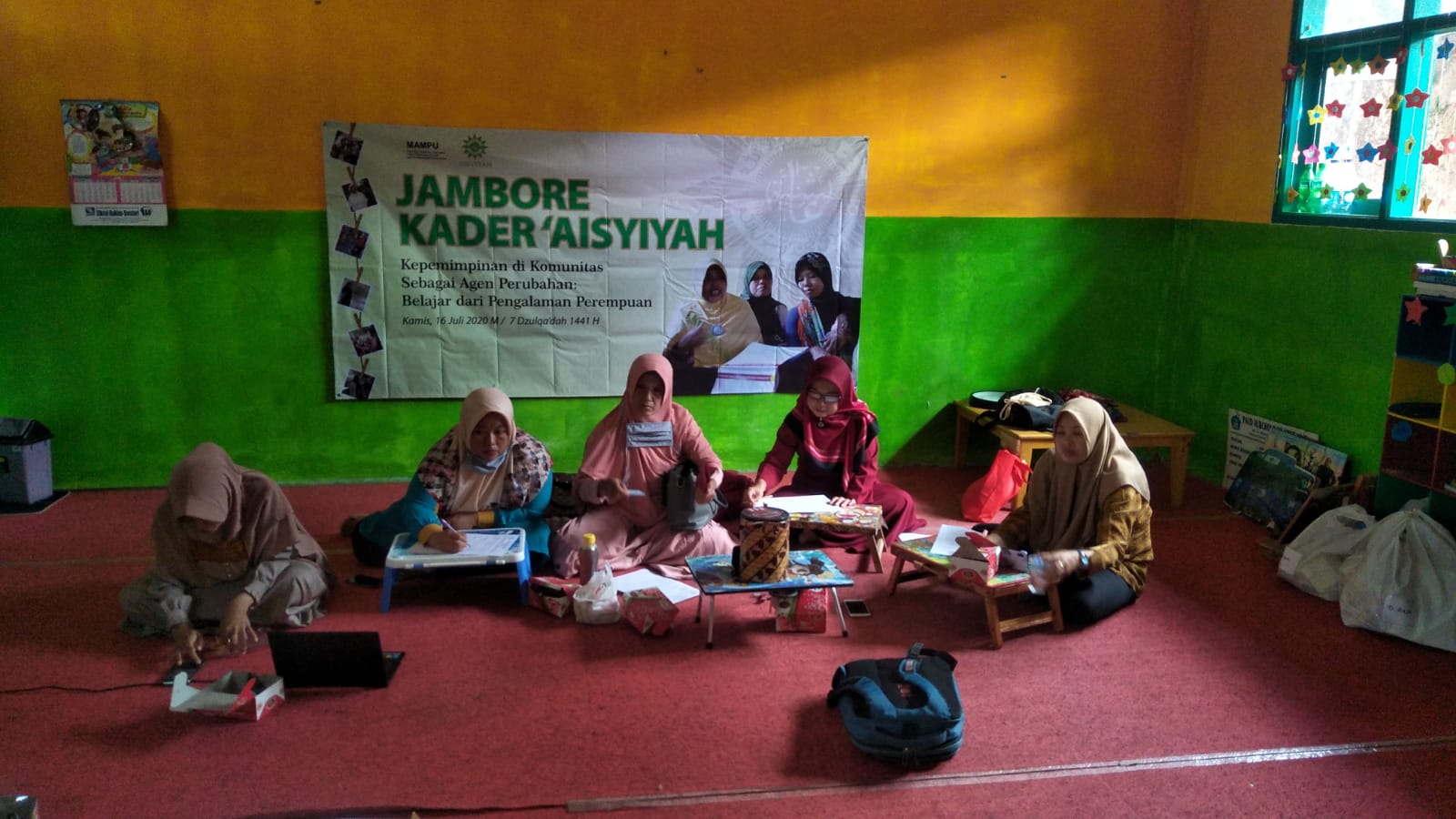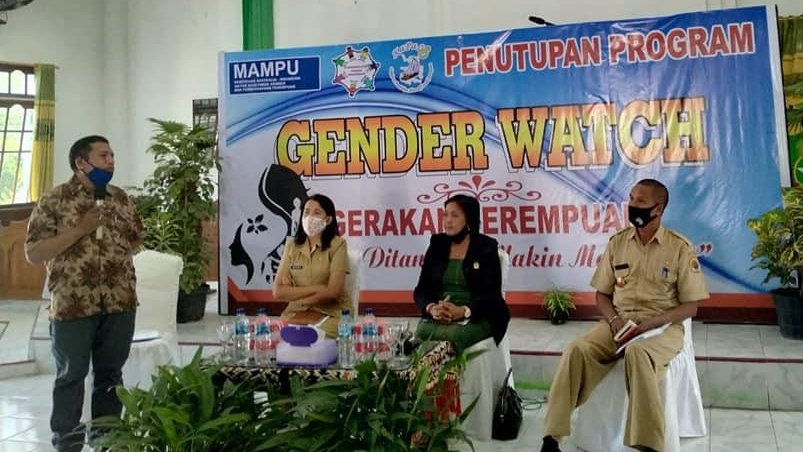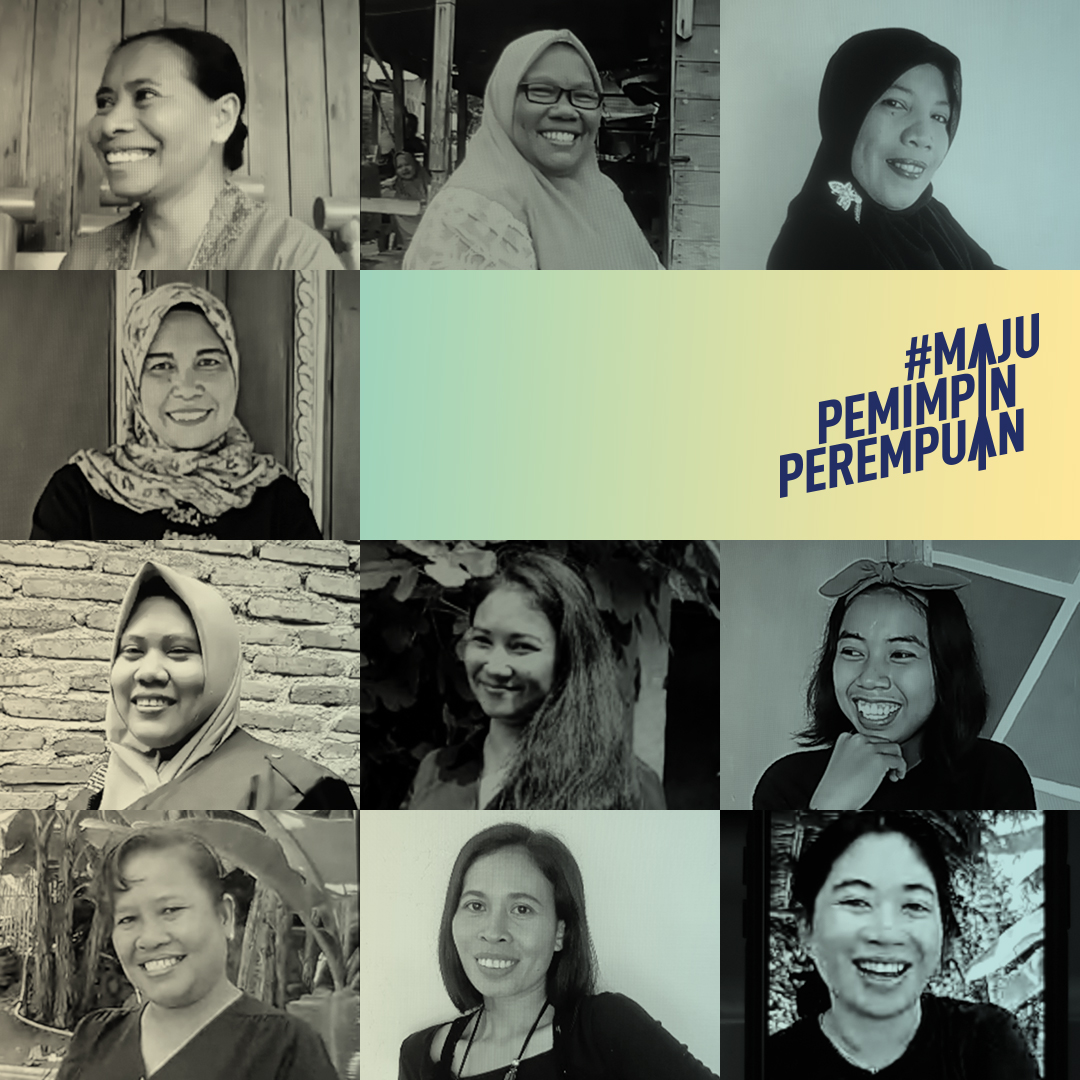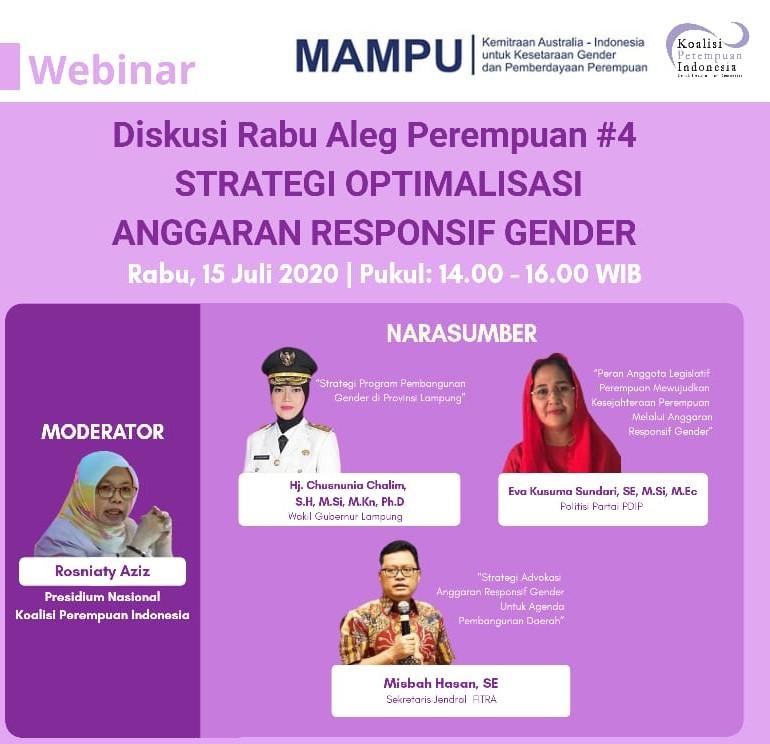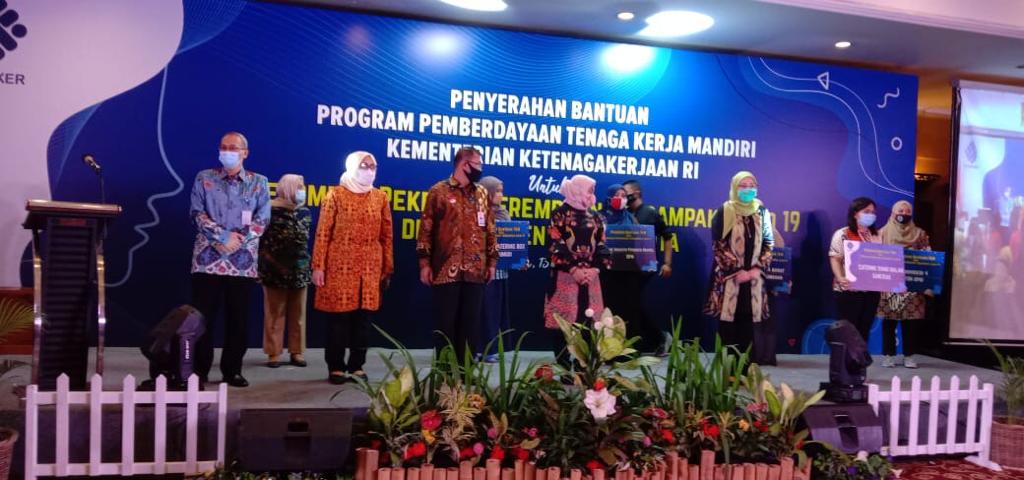Event
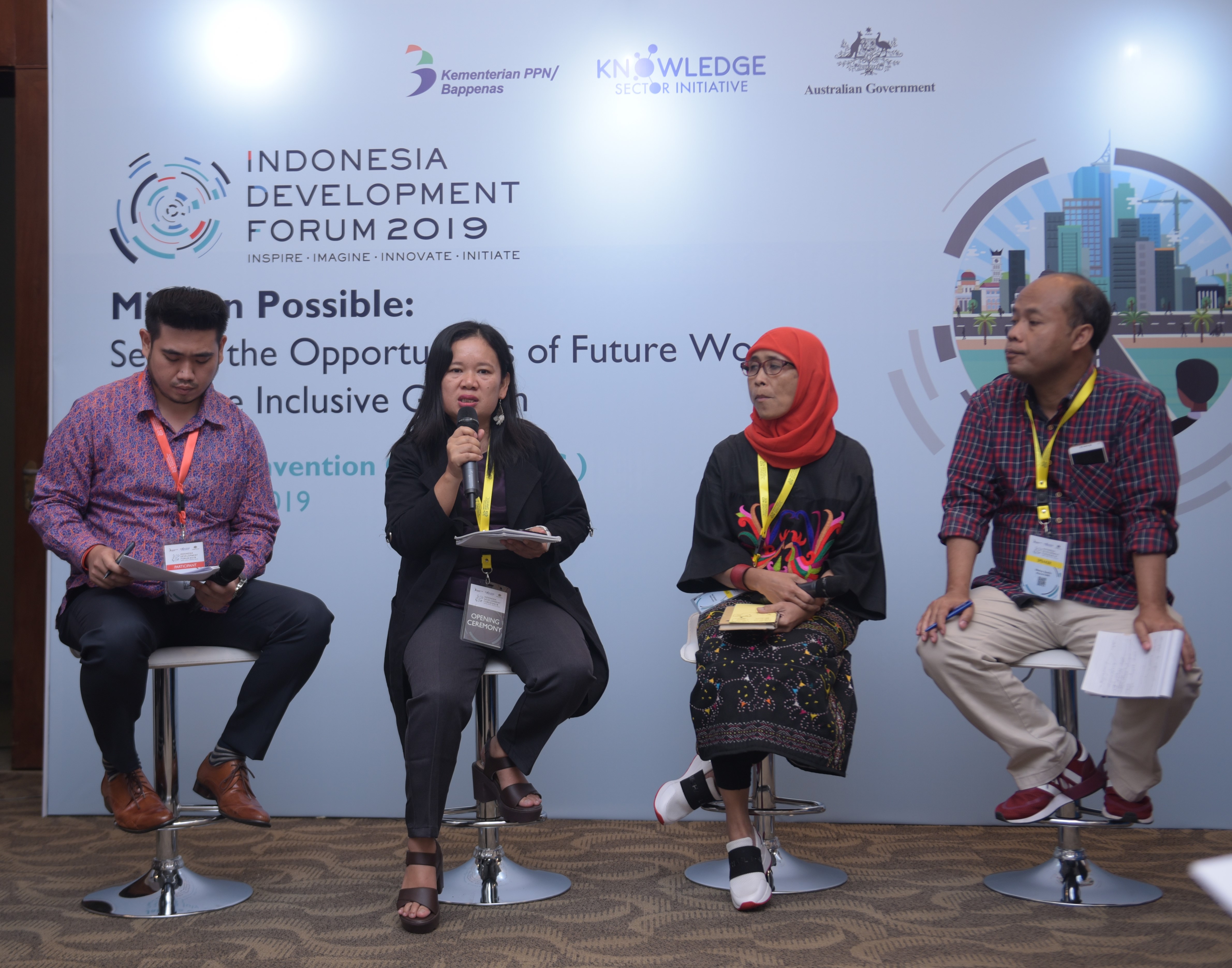
Talking Decent Work for Women in the Informal Sector at IDF 2019
4 October 2019Author: Amron Hamdi

On 23 July, four MAMPU Partners: BITRA, Migrant CARE, PEKKA and the Trade Union Rights Center (TURC) hosted a session at the Indonesia Development Forum 2019 (IDF2019) that focused on vulnerabilities faced by women employed in the informal sector. The session was titled “Decent Work for Women in the Informal Sector”. The speakers from the MAMPU Partner organisations also talked about various initiatives that are supporting decent work for women in the informal sector.
Andriko Otang from TURC moderated the event and Erika Rosmawati from BITRA presented first. Rosmawati talked about the recent fatal lighter factory fire in Binjai, North Sumatra and the explosion in a makeshift firework factory in Asemka, West Jakarta to highlight the dangerous conditions that homeworkers are often employed in. She also presented the results of a survey that was carried out by MAMPU Partners BITRA, Yasanti, TURC and MWPRI in 29 regencies and 7 provinces that involved 5,300 homeworkers. The results demonstrated that homeworkers work an average of 58 hours a week and are paid an average of IDR 100,000 (approximately AUD 11) per month. 96% of the surveyed homeworkers were not covered by Workers Social Security (BPJS Ketenagakerjaan) and 95% were not covered by the Health Care and Social Security Agency (BPJS Kesehatan). Homeworkers often had to provide their own equipment and 97% of their work instruments were unsafe. These conditions were further worsened by the reality that 92% of the surveyed homeworkers did not have a written work contract.
Nani Zulminarni from the Women-Headed Household Empowerment Program (PEKKA) talked about women heads of households and the findings of a survey carried out by PEKKA and SMERU Research Institute. The community-based welfare monitoring study was carried out in 111 villages across 17 provinces of PEKKA’s working area. The survey showed that 1 of 4 families were headed by women and 71% of families with the lowest social welfare ranking were women-headed families with an income of IDR 10,000 per day on average. 57% of women heads of households were illiterate, and only 41% had had their marriages registered. The study also showed that generally women heads of households’ who had been divorced experienced discrimination and 78% had experienced domestic violence.
Wahyu Susilo from Migrant Care talked about women’s vulnerability in the informal sector with a focus on migrant workers. Of the 9 million Indonesians working abroad, 62% are women (World Bank, 2017); these women are vulnerable to illegal recruitment practices, and even to recruitment by terrorist groups. Women migrant workers are also vulnerable to human trafficking, extortion, sexual abuse, and violence. They often work long hours for small wages.
MAMPU’s IDF 2019 session continued with a discussion that focused on the innovative solutions being implemented by BITRA, PEKKA and Migrant CARE such as building and strengthening the capacity of homeworker groups and networks, establishing 290 homeworkers groups, strengthening the leadership of women heads of households through economic empowerment, pioneering a village-based approach to migrant worker empowerment, Villages that Care about Migrant Workers (DESBUMI) which aims to increase protection for migrant workers.




